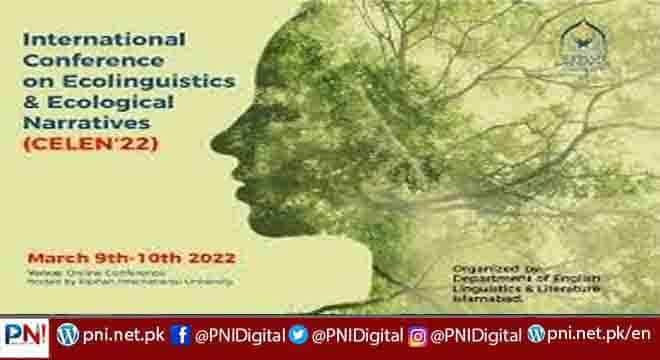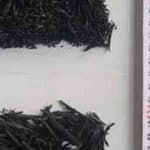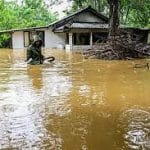ISLAMABAD, Mar 10 (APP): A two-day international e-conference on Ecolinguistics and Ecological Narratives concluded here Thursday at the Department of English Linguistics and Literature, Riphah International University.
At the conference, 28 international speakers from 16 countries presented their research on much-needed topics of ecology.
More than twenty-five institutes were engaged in the conference. Famous researchers in Ecolinguistics, such as Dr. George M Jacobs, Dr. Hildo Honório do Couto, Dr. Arran Stibbe, Dr. Peter Makwanya, and Dr. Meng Huat Chau, were an integral part of the conference.
Dr. George M Jacobs emphasized how language can play a part in helping the United Nation’s Sustainable Development Goals (SDGs). He also discussed the role of native languages in this process.
He argued that the teachers need to step out of the confines of traditional teaching methods to achieve the SDGs. Dr. Hildo Honório do Couto enlightened the audience with Ecosystemic Discourse analysis (EDA).
He discussed how EDA is different from traditional methods of analysis and how it can help consolidate eco-solidarity.
Dr. Arran Stibbe’s talk explored how Ecolinguistics can offer the study of ethical leadership.
Dr. Peter Makwanya explicated about the need for humans to understand the role of the environment in their lives. Dr. Meng Huat Chau discussed the crucial role of Ecolinguistics in today’s world.
He emphasized the power of language as a tool to create an ecologically inclusive, respectful, and compassionate world for all.
The conference focal person and Chairperson, Department of English, Riphah International University, Dr. Muhammad Shaban Rafi highlighted the importance of local languages, which might play an essential role in engaging citizens in greater understandings of the world’s environmental crisis and providing an ecolinguistic solution. Climate references can be embedded in the curriculum and classroom lessons.
To help students to better understand climate change, while navigating the danger of eco-anxiety. the Department of English has introduced a course on Ecolingusitics in its BS English program.
The conference participants emphasized that such scholarly gatherings would be organized in the future to create a sustained impact. The recent talk around ecology is already an integral part of our belief system as Muslims.
Dr. Anis Ahmad, Vice-Chancellor, Riphah International University, Islamabad and Chairman, National Rahmatul-Lil- Aalameen Authority expressed, “Islam wants conservation of resources and energy, living with austerity, and avoiding extravagance”.
The Qur’an strongly condemns Israf and the waste of resources. The Prophet s.w.a.s. instructs that a believer should not wash his face and hands more than three times even when making ablution on a riverbank. It is time that youth become aware of valuable instructions on preserving the ecological balance in the Qur’an and Sunnah.
The International Panel for Climate Change published 3675-page report recently and declared that Pakistan is ten times more vulnerable to environmental catastrophes than the rest of the world. There is speculation of Pakistan climate refugees. Eventually, environmental woes are going to be our security threat in many ways. It is crucial to channelize all possible means to address the threat of global warming.
The Higher Education Commission, Pakistan, and the Ministry of Climate Change might want to collaborate with the Department of English Linguistics and Literature, Riphah International University, Islamabad, to promote the understanding of ecology in different languages to create a change in the meaning-making processes.
Moreover, the department will continue a series of conferences on ecolinguistics and ecological narratives to create a long-term impact.
It was decided that scholars will be provided a venue in the form of the Journal of Ecolinguistics and Ecological Narratives to regularly publish and exchange their thoughts to save the natural environment.
Follow the PNI Facebook page for the latest news and updates.









